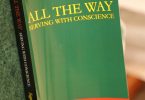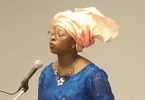IN LIGHT OF THE FOREGOING CORE POSITIONS ON EDUCATION, HOW WOULD AWO RESPOND TO CURRENT THEORETICAL AND PRACTICAL POLICY DIRECTIONS ON EDUCATION?
Awo insisted on the responsibility of the state to educate her citizens rather than leave it to private hands. The reverse appears to be our policy orientation now as private institutions literally litter our streets and residential blocks because the state has abandoned its responsibilities. In his response to a respected Catholic Archbishop on the matter of private education, Awo objected to the latter’s preference for private schools “the existence of which emphasizes the division of our society into classes.” He might have also added the unfortunate unintended consequence of private religious institutions on unhealthy sectarianism. Surely, these institutions blazed the trail of education in the country. But the prize that the nation had to pay was the division that naturally comes with that approach. Where national unity despite sectarian division is a priority, an independent country cannot afford to outsource the education of citizens.
In spite of his rebuke of the Archbishop’s critique of the UPN educational policy, Chief Awolowo did not foreclose a role for private institutions in the education of children. He must have believed that it was an area where freedom of choice should be available. In his term as Premier, private institutions including religious institutions participated in the education of children. What he was against was the divisive and discriminatory role that those institutions are capable of playing.
A more thoroughgoing approach would prefer the public, through its government, to educate its children. There are good reasons for such a radical position which was actually adopted by the UPN when the party took over all schools as government institutions.
First, it appears that at all levels, we are inadvertently managing to entrench a dangerous system of inequality with our educational system in which the public education of our children is fast becoming a relic of the past while we enlist the services of private institutions and agencies and we seem to relish the idea. From pre-school to college, private institutions have become the vogue. The impact of this shift on citizens could be serious, with the poor and middle class being more adversely impacted than the wealthy. We cannot allow this to continue because of its implications for egalitarian development.
Second, it is in the interest of the nation to be in the driver’s seat as far as the upbringing of its children is concerned. Where the inculcation of national values matters, this cannot prudentially be outsourced. But that is exactly what we do when we neglect public institutions and expect private institutions to fill the vacuum. I still marvel at the thought by those in position of authority over our system of higher education when they claim that private university is the future of the nation.
There is no better response to the current national and state policies with regard to the imposition of impossible fees and tuition on poor kids than Chief Awolowo’s original defense of the duty of the state to provide universal and free education at all levels. But let us acknowledge at least two thoughtful objections, both of which can be answered conclusively.



